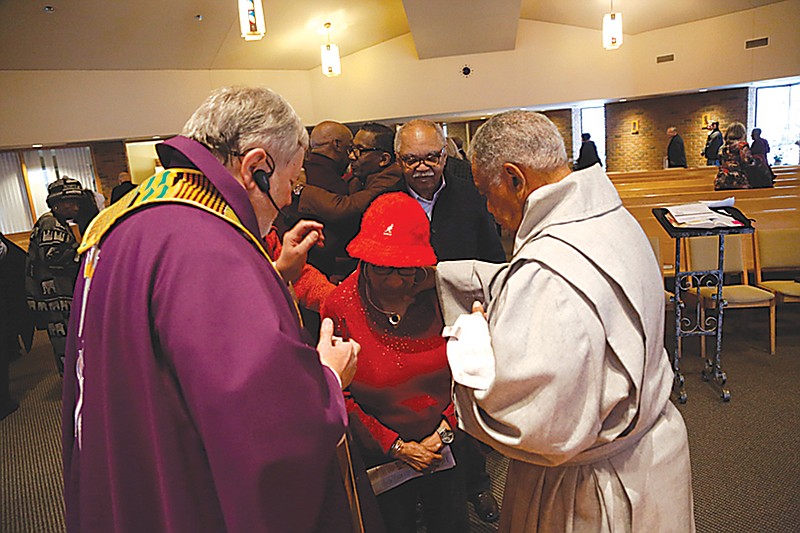CHICOPEE, Mass. - More than a century ago, waves of Catholic immigrants from Ireland, Poland and Quebec settled in Chicopee and other western Massachusetts mill towns, helping build churches, rectories and schools to accommodate their faith. Today the priests leading those churches are under siege due to stresses, challenges and sex abuse scandals complicating their lives and those of their fellow priests across the United States.
The Rev. Mark Stelzer is among those trying to persevere. He's a professor at a Roman Catholic college in Chicopee, and its chaplain. He travels frequently to out-of-state events organized by a Catholic addiction-treatment provider, recounting his own recovery from alcoholism.
Last year, his busy schedule got busier. Amid a worsening shortage of priests, the Diocese of Springfield named him administrator of a parish in Holyoke, Chicopee's northern neighbor, where he lives alone in a mansion-sized rectory while serving as spiritual leader to the 500 families of St. Jerome's Church.
This is the ripple effect the church's long-running sexual abuse crisis has had on many honorable priests: heavier workloads, increased isolation as multi-priest parishes grow scarce and an erosion of public support. It has led some to question the leadership of their bishops.
Stelzer loves being a priest, yet he's frank about the ever-evolving stresses of his vocation that leave him nostalgic for the priesthood he entered in 1983.
"It was a lot simpler then," he said. "There's a real longing, a mourning for the church that was - when there was a greater fraternity among priests, and the church was not facing these scandals that are now emerging every day."
Stelzer's concerns echoed those of other priests, and some of their psychological caregivers, who were interviewed by The Associated Press. Burnout has been a perennial problem for clergy of many faiths. But Thomas Plante, a psychology professor at California's Santa Clara University who has screened or treated hundreds of Catholic clerics, sees new forms of it as the sex abuse crisis persists and many parishioners lose trust in Catholic leadership.
"You're just trying to be a good priest and now everyone thinks you're a sex offender," he said. "If you walk in a park with your collar on, people think you're on the lookout for children. Some have been spat upon."
The Springfield diocese, like many across the U.S., has a long history of sex-abuse scandals. In the early 1990s, priest Richard Lavigne was defrocked and several of his victims received cash settlements. In 2004, a grand jury indicted Thomas Dupre on two counts of child molestation soon after he resigned following a 13-year stint as Springfield's bishop.
Stelzer had hoped the abuse crisis was abating but it resurfaced dramatically over the past two years. Abuse allegations led to former Cardinal Theodore McCarrick's ouster from the priesthood and a Pennsylvania grand jury report asserted that about 300 priests had abused at least 1,000 children in the state over seven decades.
"It opened up an old wound and now we're back to ground zero," Stelzer said in an interview at theCollege of Our Lady of the Elms.
The wound is self-inflicted, said Rev. Philip Schmitter, 74, who has served for 50 years in Flint, Michigan. His stance endears him to an African American community where he lived in public housing for three decades to maintain close ties.
Two miles north of Stelzer'scampus, on a recent Sunday, the Rev. William Tourigny was getting ready for the 4 p.m. Mass - his fourth and last of the day - atSte. Rose de Lima Church.
When Tourigny, now 66, was ordained in 1980, the Springfield diocese had more than 300 priests serving 136 parishes. Since then, the ranks of priests have shrunk by more than half and nearly 60 of the parishes have closed. For Tourigny, it's meant many more funerals to handle.
For years, Tourigny's had therapy sessions, which he describes as "crucially important," and he strives to minister compassionately without being engulfed in the emotions of those he consoles.
"I can share their pain but I can't enter into it," he said. "I'd be overwhelmed by grief."

